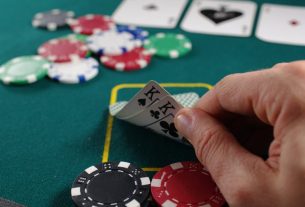Gambling isn’t just about luck anymore. Sure, slot machines and roulette wheels still dominate casinos, but there’s a quiet revolution happening—one where skill, strategy, and a bit of nerve can tilt the odds in your favor. Skill-based gambling games are carving out a niche, especially among younger players who crave more control over their fate. Let’s dive in.
What Exactly Are Skill-Based Gambling Games?
Unlike traditional casino games where outcomes rely purely on chance, skill-based games blend luck with player ability. Think poker, blackjack, or even newer hybrids like fantasy sports betting or esports wagering. The more you know, the better your chances—at least in theory.
Why the Sudden Popularity?
Millennials and Gen Z aren’t content with passively pulling a lever and hoping for the best. They want engagement, competition, and—let’s be honest—a way to flex their expertise. Here’s what’s driving the trend:
- Control: Players feel less like victims of randomness and more like active participants.
- Social Appeal: Many skill-based games involve multiplayer elements or live competitions.
- Gamification: Leaderboards, achievements, and progressive challenges keep players hooked.
- Mobile Boom: Apps make it easy to practice and play anytime, anywhere.
The Psychology Behind the Appeal
Humans hate feeling powerless. Skill-based gambling taps into our innate desire for mastery. When you win, it’s not just luck—it’s you. That psychological payoff is addictive in the best (and sometimes worst) ways.
Studies show that players often overestimate their skill level, especially in games with even a slight chance element. This “illusion of control” keeps them coming back, convinced the next round will be their big break.
Skill vs. Luck: The Blurred Line
Not all skill-based games are created equal. Poker, for instance, leans heavily on strategy, while something like daily fantasy sports mixes knowledge with unpredictable player performances. Even blackjack—often touted as skill-based—still hinges on the dealer’s next card.
Here’s a quick breakdown:
| Game | Skill Level Required | Luck Factor |
|---|---|---|
| Poker | High | Medium |
| Blackjack | Medium | High |
| Fantasy Sports | High | Medium |
| Esports Betting | Medium | Low |
The Dark Side: Risks and Responsible Play
Skill-based gambling isn’t a magic bullet. In fact, the very thing that makes it appealing—the sense of control—can lead to overconfidence. Players might chase losses, convinced they can “outsmart” the game next time. Here’s what to watch for:
- Tilt: Frustration after a loss can cloud judgment, leading to reckless bets.
- Time Sink: Practicing to improve skills can blur into obsession.
- Regulation Gaps: Not all skill-based platforms are transparent about odds or fairness.
That said, many platforms now incorporate responsible gaming tools—like deposit limits or cooling-off periods—to help players stay in check.
Where’s This All Heading?
The lines between gaming, gambling, and esports are getting fuzzier. We’re seeing hybrid games—like those with skill-based bonus rounds in slots—or apps that let you bet on your own performance in mobile games. The future? Probably more customization, more social features, and, inevitably, more debates about regulation.
One thing’s for sure: the house still has an edge. But for players who love a challenge, skill-based gambling offers a thrill that pure chance never could.





